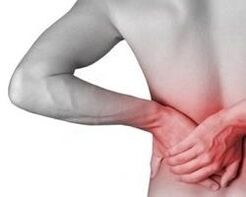
Prostatitis is an inflammatory process that develops in the prostate.In theory, everyone is at risk of getting sick, no matter how old they are.
But men who are affected by the following factors are most vulnerable to:
- A sedentary lifestyle;
- Long-term sexual desire or vice versa, excessively active sex;
- Frequent constipation.Please note that prostatitis can only cause routine fecal disease and will not cause constipation.
- Low temperature.To get prostatitis, you don’t have to swim in the cold water for a few hours, sit on cold stones or wear inappropriate clothes for a long time;
- Chronic inflammatory diseases (e.g., chronic bronchitis) or undetected focus of infection (tooth caries, tonsillitis);
- Chronic and acute urology or metastatic sexually transmitted diseases (urethritis, gonorrhea);
- A sedentary work.First, these people are forced to sit constantly at work without the chance to get up and stretch (driver, computer operator);
- Any condition that can inhibit the body's immune system.These include nutritional inadequate or insufficient nutrition, physical and emotional overload, constant lack of sleep, chronic stress).
All of the above factors are particularly dangerous if a person is older than 50 years old.Indeed, at this age, the hormonal background changes significantly, immunity decreases, various diseases appear, and moreover, men at this age rarely have an active lifestyle.It is for these reasons that all men over 50 must prevent urologists every six months.
How does the disease begin?
Usually, during urination, the first sign of prostatitis is an unpleasant, or even a painful feeling.Sometimes you have to get up a few times a night before you can go to the bathroom.At this stage of the development of this disease, few people seek doctors, although treatment will be short-lived.
After a period of time, there is a sharp cut, pull or shoot pain in the pubic area or in the perineum, and sometimes the pain will radiate to the penis or anal area.Urination becomes frequent and painful, and urine becomes muddy.Pain may occur during bowel movements.
Next, body temperature will rise, and sometimes men notice the release of translucent white fluid from the urethra.Usually, most men happen to seek a doctor during this period of illness.
What happens if you don’t treat prostatitis?
If you do not consult a doctor and do not start treatment after the above symptoms, the disease will further develop.The temperature can rise to 40 degrees, the pain becomes very strong, the urination becomes very painful, and the urine flows out of the body is disturbed (flow or drip flowing from the urethra).If prostatitis is not treated for a longer period of time, the higher the possibility of acute urination delay and the development of acute renal failure.It also needs to be checked in time, as prostatitis and prostate cancer can also be used with symptoms similar to the prostate.
diagnosis
After contacting the urologist, prostate studies were conducted through the rectum and the secretion of the prostate was analyzed.The process is not very pleasant and sometimes painful, especially in the later stages of the disease.Sometimes, it is precisely because of this person that a man doesn’t want to see a doctor.
But in reality, the earlier you do the checkup, the more painful it is.Furthermore, prostate palpation itself is already a treatment because it helps eliminate stagnation.
In the laboratory, the secret of sowing glands was to nutrient medium, the sensitivity of the bacteria to antibiotics was determined, and urine analysis was performed.Ultrasound examination was also performed to confirm the diagnosis.In most cases, the treatment of prostatitis is not difficult for urologists to accept.
The early stages of prostatitis are treated at home.The patient is prescribed for antibacterial drugs, bathrooms, compression and other thermal procedures, as well as pain medications and prostate massage.Treatment for about 10 days.During the treatment, you cannot eat spicy dishes and alcohol.
Signs and treatment of chronic prostatitis
In chronic prostatitis, pain in perineal pain will occur, which will subside when walking or physical exercise are mild, and burn during urination.A man often sleeps poorly and becomes irritable.
If chronic prostatitis is not treated, it can lead to inflammatory processes of pelvic organs and even infertility.Reflexology and prostate massage are also added to the above treatments.Patients are advised to live a more active lifestyle and to exclude spicy foods and alcohol from their diet.
Trust the doctor
Don't make your own diagnosis without seeing a doctor.After all, only urologists can choose the best treatment based on the test results.
When self-assaying, you will use "blind" antibiotics.This can lead to a chronic transition of the disease.If the disease continues to progress, hospitalization may be required.In the hospital, the treatment process will last for 1-2 weeks, or even longer.
To prevent complications from developing, make sure to check with your urologist every six months.
prevention
Prevention of prostatitis has been reduced to the following suggestions:
- If you have to be cold for a long time, choose the right clothes;
- Regular, adequate food;
- Live an active lifestyle and participate in sports;
- Use constipation, use laxatives;
- Outdated sex life, best with a permanent partner.
Many men suffer from prostatitis.This article provides basic information about the disease and can also explain why regular visits to urologists are necessary.























